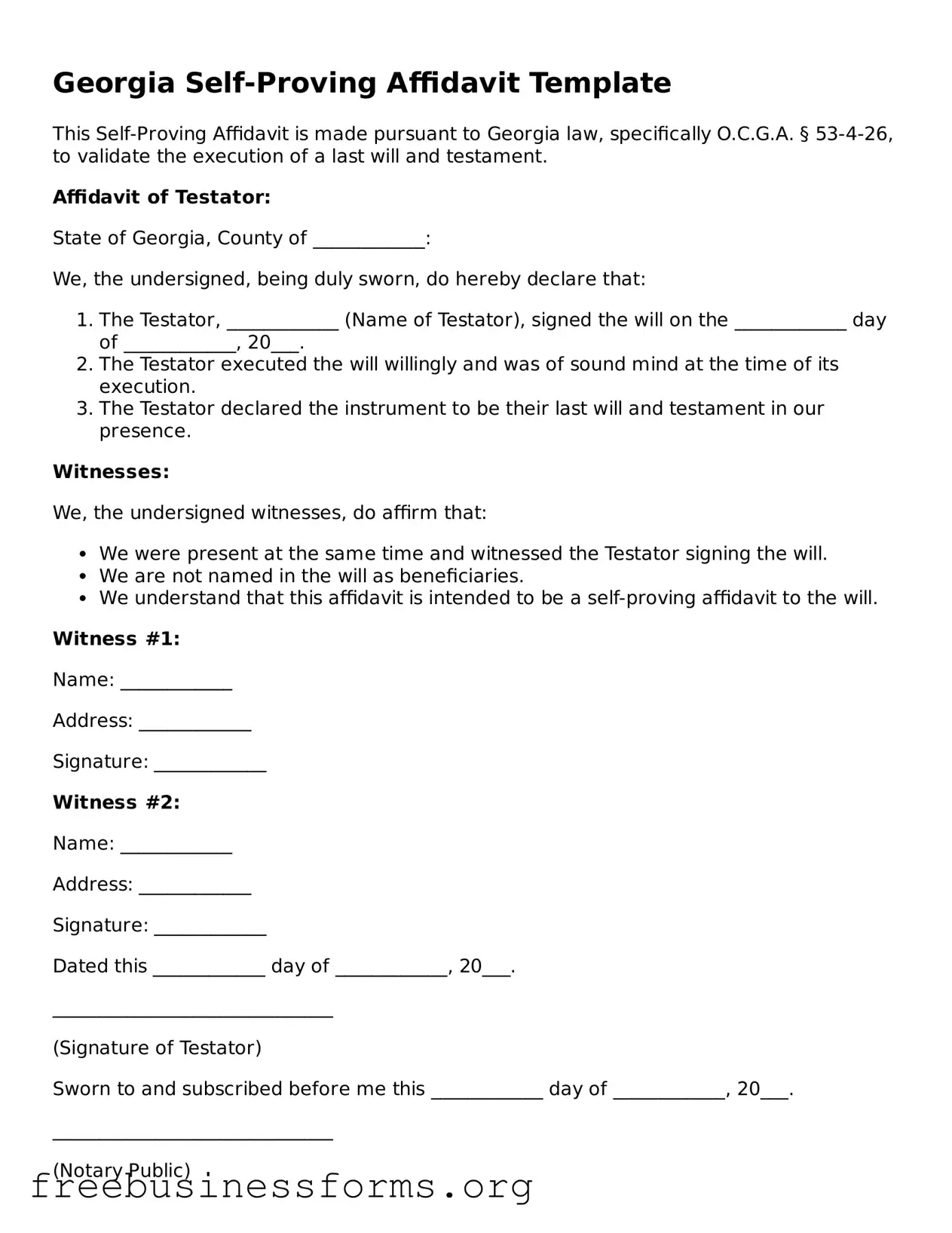Blank Self-Proving Affidavit Template for Georgia
The Georgia Self-Proving Affidavit is a legal document that allows a will to be validated without the need for witnesses to testify in court. This form simplifies the probate process by confirming that the will was executed properly. Understanding its purpose and how to use it can help ensure your wishes are honored after your passing.
Open Form Here

Blank Self-Proving Affidavit Template for Georgia
Open Form Here

Open Form Here
or
↓ PDF File
Quickly complete this form online
Complete your Self-Proving Affidavit online quickly — edit, save, download.